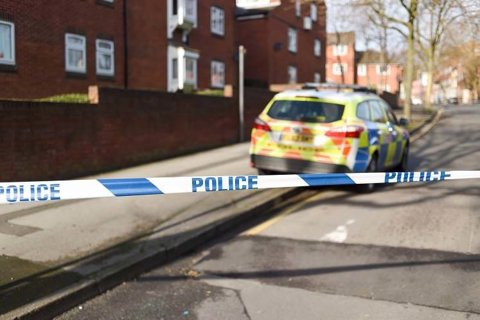What Did the IOPC Report Find?
Whilst the IOPC report acknowledges that South Yorkshire Police have made significant improvements since 2013, it also identities the clear failures. The report examined 16 years’ worth of evidence which led to the conclusion that South Yorkshire Police were not prepared well enough to cope with the scale of organised sexual abuse and exploitation of young people in Rotherham.
The Operation Linden report was created at the end of an 8 year investigation that cost £6 million, after 1,400 girls in Rotherham were subjected to sexual abuse between 1997 and 2013.
The report looked into 93 investigations, of which 91 are concluded. There were 265 separate allegations made by 51 complainants, of which 44 were survivors of abuse. It also investigated the conduct of 47 officers and 8 were discovered to have a case for misconduct, while 6 had a case for gross misconduct.
Out of the 164 allegations that the IOPC decided on, only 43 were upheld. The evidence uncovered included around 20,000 documents, over 1,300 exhibits, and 800 statements.
What Happened after the Sexual Abuse Reports Were Made to the Police?
The IOPC report states that the Police force prioritised other crimes, such as vehicle offences and burglary, over child sexual abuse and exploitation. The investigation found very little evidence that the South Yorkshire Police’s leaders identified and acted on the concerns surrounding child abuse.
For example, when one parent reported to the police that they had a concern regarding their missing daughter, the police didn’t follow up on it. Instead, the police told the parents that “it was just a fashion accessory” for young girls to have an “older Asian boyfriend”. The police officer continued to explain that their daughter “would grow out of it”.
Another parent reported the rape of their 15 year old daughter while she was in Rotherham Park, but they were told by the police that the incident would “teach the child a lesson”.
What Does the Report Recommend?
The IOPC report issued 13 statutory recommendations to various organisations in South Yorkshire, including the College of Policing and South Yorkshire Police. These recommendations are based on the findings of the Operation Linden report.
The recommendations mainly focus on the need for regular and specialised training within the police force, including incorporating real voices of survivors into relevant internal training. This looks to further improve the communication that the police have with survivors.
What Does This Mean for Survivors of Abuse?
Following the report’s publication, many people – including survivors of abuse in Rotherham – have spoken out about the police and local authorities’ inactions and considerable shortcomings. After all, it was the role of those officers and personnel to protect the vulnerable children in need of help and escape from their abusers.
Many survivors of abuse – particularly those who reported abuse in Rotherham those years ago – are understandably angry at the inaction and attitude of the police officers involved. Not only were the severity of these crimes not understood or taken seriously, but officers were also not held to account for not doing their job.
It is important that any survivor of abuse reading this knows that lessons have since been learned, and the police today have a considerably improved understanding of abuse, the actions to take and how to help survivors. We welcome the findings from the report as a step forward in safeguarding children from abuse and seeing that actions are taken so that those in danger are heard and protected when they go to the police or their local authority in a time of severe need.
Do not be deterred from reporting abuse; from these past failings, actions will be taken to see that history does not repeat itself.
>> Read the case study of a survivor we helped here.
Speak up Speak Out | The MoJ’s Victim-Survivor Support Needs Survey
This month, the Ministry of Justice launched its Victim-Survivor Support Needs Survey. The survey aims to gain an understanding of how people who have experienced abuse can be better supported in England and Wales.
To inform future funding for support services, the Ministry of Justice wants to hear from anyone who has suffered sexual violence or any other form of abuse as an adult. This includes sexual activity that was unwanted.
Abuse is difficult to talk about. It can take a long time for people that have experienced abuse to be able to let anyone know that it has happened. We understand that it takes immense courage to report abuse and to take legal action against those responsible.
Support for Sexual Abuse Survivors
If you have experienced sexual abuse or exploitation, there is help available in the form of local and national organisations and services.
Here is a list of some of the support services that are available:
- The Survivors Trust – Offers confidential support and advice to anyone who’s experienced sexual abuse or violence.
- Galop – Supporting LGBT+ people who are survivors of sexual abuse, assault, or violence.
- Victim Support – 24 hour support line.
- 1 in 6 – Accessible resources for men who have experienced sexual abuse.
- NAPAC – Offers support and advice to survivors of sexual abuse, childhood abuse, and neglect.
Signs of Sexual Abuse
If you are concerned about an adult or young person who you feel may be experiencing sexual abuse, exploitation, or violence, you can help. While every victim will show signs differently, there are some key things to look out for:
- Suddenly frightened of people or someone they know.
- Changes in their mood, such as feeling angry.
- Inappropriate sexual language or behaviour.
- Suspicions that they are self-harming.
- Experiencing nightmares.
- Eating habits have changed, including problems with eating.
- Bruises or marks on their body.
- Bleeding and/or soreness in private areas.
It’s also important to be aware that children and young people who are being sexually abused online may start spending either more or less time online than usual, including social media and texting. They may also be secretive about who they’re talking to and want to hide their online activities from you and other people.
If a child wants to talk to someone about what is happening, they may try to leave hints, such as hand-drawn pictures, about the abuse that they are experiencing in the hopes that someone will realise or ask them questions that lead to a discussion about it.
Simpson Millar – How We Can Help Sexual Abuse Victims
We understand that sexual abuse and exploitation is difficult to talk about. It can take a long time to get the courage to speak to someone about what happened to you after experiencing abuse. At Simpson Millar, we understand that it takes immense courage to report sexual abuse and to take legal action against those responsible.
Our specialist team of Abuse Claims Solicitors are compassionate, understanding, and easy to talk to. We’ll handle your case with the sensitivity it deserves, offering you help and support throughout the whole process.
When you are ready to talk, we are here to listen.
You can contact our Sexual Assault Solicitors online or by calling us for a free confidential case assessment. Legal Aid may be available, depending on your financial situation or we could deal with your claim on a No Win, No Fee basis.




